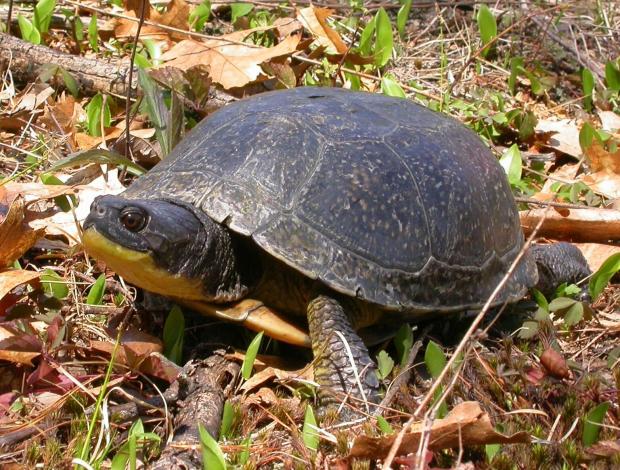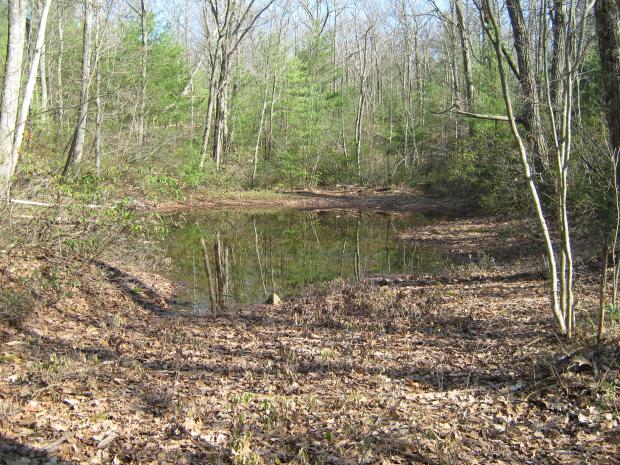Habitat Protection
Listed reptile and amphibian species require a variety of habitat types to complete their annual life cycle. In the process, these species travel long distances over land. They often cross roads, which makes them vulnerable to road mortality. Many of these species use different habitats for breeding, overwintering, and nesting. For example, Blanding's Turtles move from marshlands where they overwinter, to vernal pools where they breed and feed. Then the females move to open canopy upland areas for nesting.
Reptile and amphibian conservation is achieved by protecting the habitats in which these species live. Habitats are protected from a variety of threats, including:
- outright destruction
- habitat degradation
- invasive exotic plants
- succession
- roads
Vernal Pools
Some amphibians depend on the presence of vernal pools for breeding. Any changes to the hydrology of those pools can have harmful effects on these species. These amphibians spend most of their lives in the forests around vernal pools. Therefore, protection of the uplands around vernal pools is critical to their survival.
Additional Resources
Road Mortality
Populations of turtles and other species can be severely impacted by road mortality. NHESP is partnering with MassDOT through the Linking Landscapes Program. This program looks at key sites where wildlife road mortality seems to be high.
Additional Resources
Education
A key component of reptile and amphibian conservation is education. Some species are prone to accidental collection, and others are purposely killed. Accidental collection refers to animals taken as pets or moved to other locations. Some amphibians and reptiles are killed due to human fear and misperceptions. Through education, we can help people understand the harm from these actions. We can teach people why animals should not be removed from the wild or moved from their natural homes. We can also turn fear into appreciation and respect for these animals.
Observation Data
In addition to state-listed species, we are currently requesting observation data for a few additional reptile and amphibian species of interest. For more information, please see the Reptiles and Amphibians of Undetermined Status link below.
Additional Resources
Contact
Online
Phone
Open M–F, 8 a.m.–4 p.m. (closed noon–12:30 for lunch)
North/Central/Western Massachusetts
Southeastern Massachusetts/Cape & Islands

